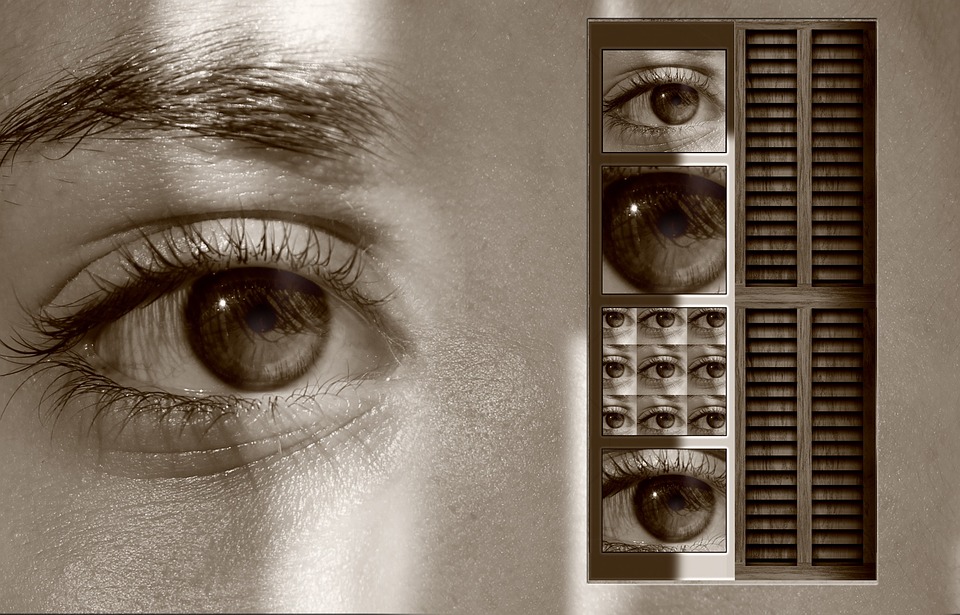
by DBT Skills | Feb 1, 2024 | DBT Therapy
[ad_1]
Validation is a powerful tool that can help strengthen relationships and improve communication. It involves acknowledging and accepting a person’s thoughts, feelings, and experiences without judgment. In Dialectical Behavior Therapy (DBT), validation is a key component of building strong and healthy relationships.
Here are five DBT tips for unlocking the power of validation and fostering stronger connections with others:
1. Practice active listening: Active listening is a fundamental aspect of validation. It involves giving your full attention to the speaker, maintaining eye contact, and showing empathy through nonverbal cues such as nodding and facial expressions. Avoid interrupting or offering unsolicited advice, and instead, focus on understanding the person’s perspective.
2. Reflect back emotions: Reflecting back emotions is a powerful validation technique that involves mirroring the emotions the other person is expressing. For example, if a friend tells you they are feeling anxious about an upcoming presentation, you might respond by saying, “It sounds like you’re feeling really nervous about the presentation.” This shows that you are attuned to their feelings and validates their experience.
3. Use validating language: The words we use can have a significant impact on how others feel understood and supported. Using validating language, such as “I can understand why you feel that way” or “It makes sense that you would be upset,” demonstrates empathy and validation. Avoid dismissive language or minimizing someone’s experiences.
4. Validate personal experiences: Everyone’s experiences are valid and worthy of acknowledgment. In a relationship, it’s important to validate the other person’s unique perspectives and experiences, even if they differ from your own. This can help foster a sense of acceptance and understanding within the relationship.
5. Be mindful of nonverbal cues: Nonverbal communication plays a critical role in validation. Pay attention to your body language, tone of voice, and facial expressions to ensure they convey empathy and understanding. Avoid dismissive gestures or expressions that may undermine the validation process.
These DBT tips for validation can help you unlock the power of validation and build stronger, more meaningful relationships. By practicing active listening, reflecting back emotions, using validating language, validating personal experiences, and being mindful of nonverbal cues, you can create an environment of acceptance and understanding in your relationships. Incorporating validation into your interactions can lead to improved communication, greater empathy, and stronger connections with others.
[ad_2]
by Dr. Phil | Jan 8, 2024 | DBT Therapy
[ad_1]
Building Stronger Family Relationships Through DBT Techniques
Family relationships can be complex and challenging at times, but there are effective techniques that can help strengthen and improve these important connections. Dialectical behavior therapy (DBT) is a widely recognized and evidence-based approach that can be beneficial for individuals struggling with emotional dysregulation, and it can also be incredibly valuable for improving family dynamics.
DBT focuses on teaching individuals skills to better manage emotions, improve communication, and build healthier relationships. These same principles can be applied to family relationships, helping family members communicate more effectively, understand each other’s emotions, and navigate conflicts in a more constructive way.
One of the core skills taught in DBT is mindfulness, which involves being present in the moment and fully aware of one’s thoughts and feelings without judgment. Practicing mindfulness as a family can help members to be more present and attuned to each other’s needs and emotions. It can also help in defusing tension and promoting a more peaceful and empathetic environment within the family.
Another important aspect of DBT is learning to regulate emotions. Family members can benefit from learning emotion regulation skills to help manage their own emotions and respond more calmly and compassionately to others. This can involve learning to identify and label emotions, practicing relaxation techniques, and finding healthy ways to cope with stress and difficult emotions.
In addition, DBT emphasizes the importance of interpersonal effectiveness, which involves learning how to communicate assertively, set boundaries, and navigate conflicts without damaging the relationship. These skills can be incredibly valuable for improving family relationships, as they can help family members to communicate their needs and concerns more clearly and respectfully.
Furthermore, learning distress tolerance skills can be particularly beneficial for families facing challenges or crises. These skills can help family members to cope with difficult situations and support each other through tough times, ultimately strengthening their bond and resilience as a family unit.
Overall, DBT techniques can provide families with valuable tools for improving communication, managing emotions, and building stronger, more positive relationships. By incorporating these skills into their interactions, family members can learn to support each other more effectively and create a healthier, more connected family dynamic.
In conclusion, employing DBT techniques can be a powerful way to improve family relationships and create a more harmonious and supportive family environment. By learning and practicing these skills together, family members can grow closer, communicate more effectively, and navigate challenges with greater resilience and understanding. With commitment and effort, families can build stronger, more meaningful relationships through DBT techniques.
[ad_2]
by Dr. Phil | Dec 20, 2023 | DBT Therapy
[ad_1]
Are you struggling to form deeper connections in your relationships? Do you find yourself feeling disconnected or misunderstood by your loved ones? If so, Dialectical Behavior Therapy (DBT) could be the key to unlocking the secrets to deeper connections.
DBT is a type of cognitive-behavioral therapy that was originally developed to treat individuals with borderline personality disorder. However, its principles and techniques have been found to be effective in improving relationships for people with all types of mental health challenges.
One of the core concepts of DBT is the idea of dialectics, which is the belief that two opposing perspectives can both be true. This means that in any given situation, there is a middle ground where two conflicting ideas can coexist. This concept is essential in improving relationships because it encourages individuals to see things from another person’s perspective and find common ground. By practicing dialectics, individuals can learn to validate their own feelings and experiences while also validating those of others, leading to greater understanding and empathy in their relationships.
Another important aspect of DBT is the emphasis on mindfulness. Mindfulness involves being fully present in the moment and paying attention to thoughts, feelings, and sensations without judgment. By practicing mindfulness, individuals can become more aware of their own emotional reactions and triggers, which can help them to communicate more effectively and navigate conflicts in their relationships with greater ease.
DBT also teaches individuals important skills for interpersonal effectiveness, such as setting boundaries, expressing emotions assertively, and practicing self-respect. These skills can help individuals to improve communication and resolve conflicts in their relationships, leading to greater intimacy and connection with their loved ones.
By integrating these principles and techniques into their daily lives, individuals can begin to see a significant improvement in the quality of their relationships. They may find that they are better able to communicate their needs and emotions, manage conflicts effectively, and establish a deeper sense of connection with their loved ones.
In conclusion, Dialectical Behavior Therapy is a powerful tool for improving relationships and forming deeper connections with loved ones. By practicing dialectics, mindfulness, and interpersonal effectiveness skills, individuals can learn to validate their own experiences while also understanding and empathizing with others. This can lead to greater intimacy, understanding, and connection in their relationships, ultimately leading to a more fulfilling and satisfying life. If you are struggling in your relationships, consider seeking out a therapist who specializes in DBT to help you unlock the secrets to deeper connections.
[ad_2]

by Dave Neal | Jun 10, 2023 | DBT Therapy
[ad_1]
Dialectical Behavior Therapy (DBT) is a type of therapy that is known to help people regulate their emotions, improve their communication skills, and create a sense of mindfulness in their lives. This type of therapy can have many benefits for people who are struggling with various mental health issues, including anxiety and depression. However, DBT can also have a positive impact on romantic relationships. If both partners are committed to the process, DBT can be a tool that can help to create a healthier and more satisfying relationship.
One of the key benefits of DBT in relationships is improved communication skills. With DBT, couples can learn to communicate with each other more effectively, avoiding misunderstandings and conflicts that can arise from miscommunication. Partners learn to actively listen to one another, validate each other’s feelings, and work collaboratively to find solutions to problems. This type of communication can lead to a more profound sense of emotional connection and intimacy, which can strengthen the relationship overall.
Another benefit of DBT in relationships is that it helps partners to regulate their emotions better. For people with strong emotions, it can be challenging to manage them effectively, especially in high-stress situations. By using the skills taught in DBT, partners can learn to recognize and regulate their emotions, allowing them to navigate difficult situations more successfully without getting overwhelmed. This aspect of the therapy allows both partners to feel more in control of their emotions, and less reactive, leading to more stable and positive interactions with one another.
DBT can also help partners develop better self-awareness, which can improve their understanding of themselves, their partner, and the relationship as a whole. This aspect of the therapy can help couples to identify patterns in their behavior and communication that may be negatively impacting the relationship. With this knowledge, they can work together to create new behaviors that are more supportive and loving, allowing them to grow closer and more connected over time.
While DBT can have a positive impact on any relationship, it is especially effective for couples who are experiencing high levels of conflict or communication breakdowns. The skills taught in DBT can allow these couples to repair their relationship and build a stronger foundation for the future. Even if your relationship doesn’t feel like it’s on the verge of breakdown, DBT can be an excellent tool for anyone looking to improve their communication, develop greater emotional intelligence, or create more intimacy with their partner.
In conclusion, Dialectical Behavior Therapy can benefit both partners in a relationship in many ways. By improving communication, regulating emotions, and fostering self-awareness, DBT can help couples to build stronger, more intimate relationships that can withstand the challenges that life throws their way. It is essential to remember that DBT is a journey, and it takes time and effort from both partners to reap the full benefits of the therapy. Still, with dedication, commitment, and a willingness to grow together, DBT can be an incredibly powerful tool for positive change in any relationship.
[ad_2]


